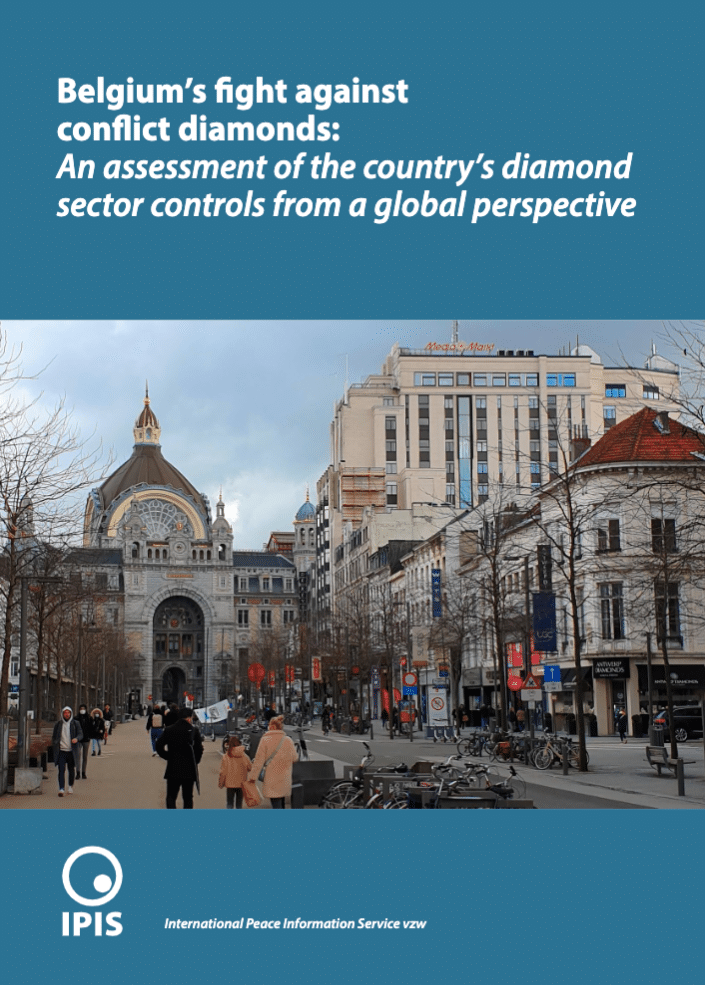In its new report, IPIS assesses Belgium’s fight against conflict diamonds. The report focusses on the Belgian city of Antwerp, which has played a central role in the global diamond trade for centuries. Yet as the world’s diamond hub, Antwerp not only attracted the best but also the worst of this diverse industry. In no uncertain terms, a series of UN and NGO reports linking Antwerp to bloody civil wars across Africa in the late 1990s and early 2000s revealed the dark side of the city’s diamond glory. The pressure was upped even further following a succession of large diamond-related fraud scandals that came to light in the years thereafter. Gradually, these developments provoked government, industry and law enforcement to take action and led to a tightening of controls on the Belgian diamond trade.
Today Antwerp presents itself as the world’s most ethical and transparent diamond centre. This claim is justified by reference to a diverse range of measures to regulate the profession and monitor the trade, which are unequalled in the rest of the world. Such measures include obligatory registration requirements for diamond dealers, the inspection of all incoming and outgoing shipments, record-keeping and stock declaration requirements, government oversight of industry self-regulation, and anti-money laundering measures.
After fifteen tumultuous years, there have indeed been no new revelations of conflict diamonds circulating on the Belgian market since 2014. Should we conclude that the strict Belgian controls beat the problem, or rather vice versa, that the problem is at present escaping detection? In this report we seek answers to this question by assessing the nature and effectiveness of the Belgian oversight and control framework from a global perspective. We shed light on the role that one trading centre can play in regulating what is essentially a single segment of an internationally dispersed sector. As the world’s leading example in implementing the existing intergovernmental and corporate regulatory frameworks, Belgium moreover makes a compelling study into the effectiveness of these approaches in ensuring a clean, ethical and transparent diamond trade.



